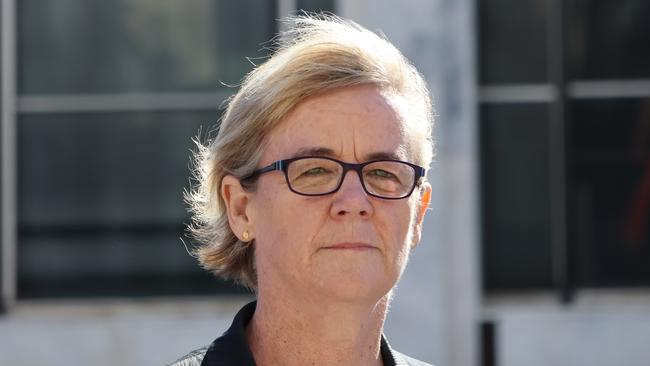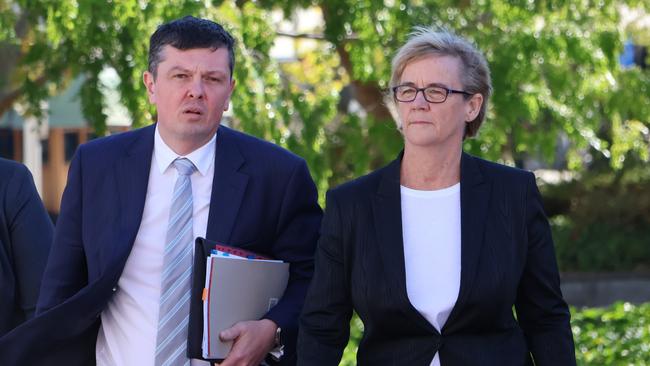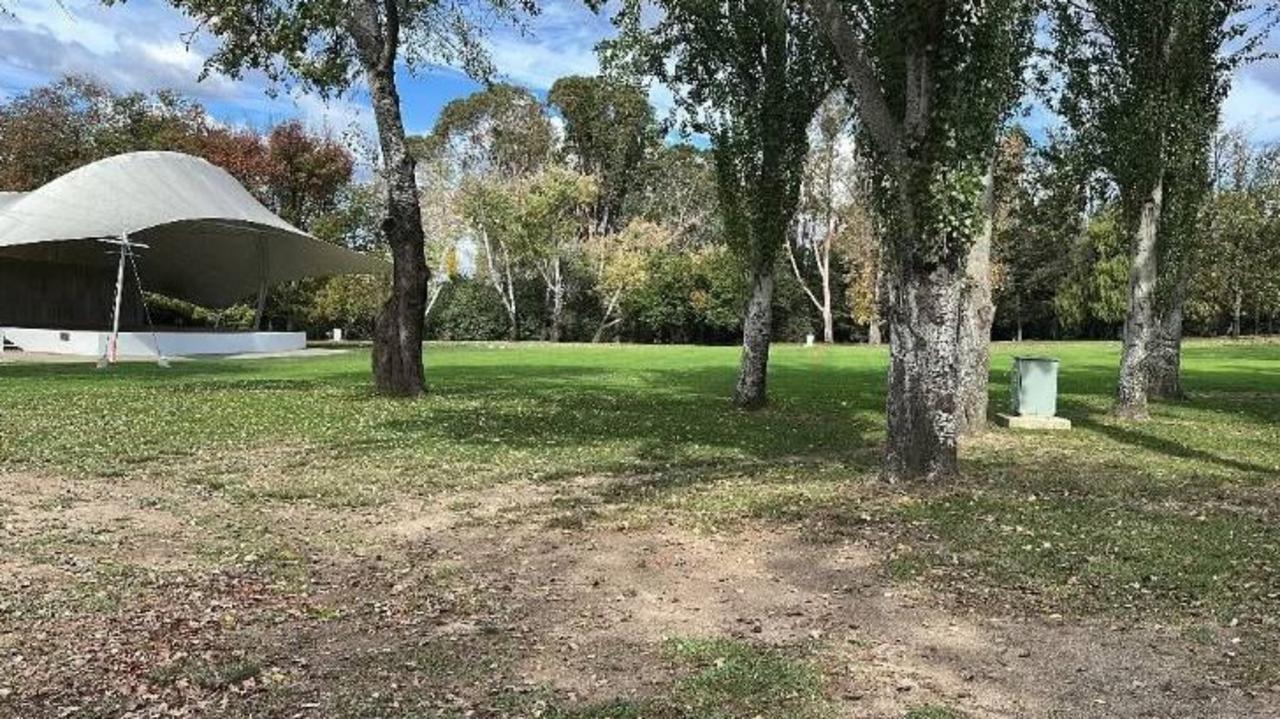Australian Federal Police commander Danielle Woodward resigns after drunken crash
A former elite athlete has quit her role as one of the nation’s top cops after a drunken crash. Find out what happened in court.

Canberra Star
Don't miss out on the headlines from Canberra Star. Followed categories will be added to My News.
An Olympic medallist has quit her role as one of the nation’s top cops after she drunkenly crashed her car into a tree following a police function in Canberra.
Former Australian Federal Police commander Danielle Anne Woodward, 59, escaped a criminal conviction when she was sentenced on Monday in the ACT Magistrates Court, which heard she had already suffered significant consequences.
Woodward, a slalom canoeist who won a silver medal at the 1992 Olympic Games, pleaded guilty to drink-driving after blowing nearly three times the legal limit in November 2023.
Defence lawyer Michael Kukulies-Smith told the court Woodward had attended an end-of-year function on the night in question, and had intended to walk home or catch an Uber.
However, she felt unwell after drinking champagne and decided to drive the roughly 1.5km to her home in the ACT suburb of Barton.

Woodward did not make it home, instead veering off the road and causing “extensive front-end damage” to her Mercedes-Benz sedan by crashing into a tree.
Having been helped out of the car by members of the public, Woodward immediately phoned her supervisor - an AFP assistant commissioner - to report the incident.

Mr Kukulies-Smith said she was then polite and co-operative with lower-ranking officers who attended the scene, never attempting to use her seniority to get herself out of the situation.
Woodward was arrested at the crash scene and taken to a police station for a breath analysis, which returned a reading of 0.148.
Police officers who dealt with Woodward after the crash reported that her eyes were watery, her speech was slurred and she was unsteady on her feet.
“Police could smell a strong odour of intoxicating liquor emanating from [Woodward] and formed the opinion that [she] was well under the influence,” a set of agreed facts states.
Mr Kukulies-Smith urged the court not to convict Woodward on Monday because of a combination of factors, including that the 59-year-old had lived “an exemplary life” of service.
The court heard Woodward had received more than 20 awards, including the Medal of the Order of Australia and the Australian Police Medal, in recognition of her professional and sporting achievements.
Mr Kukulies-Smith also tendered to the court an extensive bundle of material, which outlined the high level of stress Woodward was under in the lead-up to her offending.
He noted she had been feeling unwell for some time before the incident, and had attended hospital while suffering from a mysterious illness that had resulted in significant weight loss.
The defence lawyer also told the court Woodward had already been deterred from future offending by media attention on her case and the end of her 37-year policing career, which ended when she resigned, citing factors that included her drink-driving, late last month.
Prosecutor Samuel Carmichael opposed a non-conviction order, labelling Woodward’s act a serious example of drink-driving because of the high alcohol reading and the crash.
Mr Carmichael told the court it was “regrettably ordinary” that people of otherwise good character committed drink-driving offences, describing general deterrence and denunciation as “critical” sentencing considerations.
Chief magistrate Lorraine Walker ultimately made a non-conviction order, saying she could infer from the defence material that the offence occurred because of Woodward’s “ill health”.
Ms Walker said Woodward had shown “obvious and palpable” remorse, and it was clear the 59-year-old was not a person who would ordinarily demonstrate “this level of stupidity”.
While she did not convict Woodward, the chief magistrate disqualified her from driving for six months, taking into account a 90-day immediate suspension notice issued after the crash.




